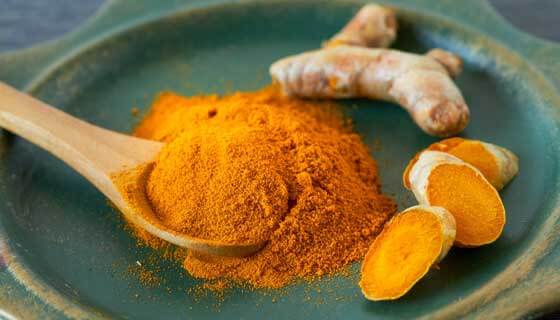Turmeric, derived from the Curcuma longa plant, is a spice known for its yellow-orange hue and has been associated with numerous potential health advantages. The active compound responsible for many of its therapeutic properties is called curcumin. Here are some of the potential health benefits of turmeric:
- Anti-Inflammatory Properties:
- Curcumin, the primary active component in turmeric, exhibits potent anti-inflammatory effects, potentially aiding in conditions such as arthritis by reducing inflammation.
- Antioxidant Activity:
- Turmeric possesses robust antioxidant properties, playing a role in neutralizing free radicals that can contribute to cell damage, aging, and various diseases.
- Joint Health:
- Owing to its anti-inflammatory effects, turmeric may help alleviate symptoms associated with joint conditions like osteoarthritis and rheumatoid arthritis, offering relief from pain and improving joint function.
- Heart Health:
- Turmeric may contribute to heart health by enhancing the function of the endothelium (the blood vessel lining), reducing inflammation, and lowering the risk of heart disease.
- Brain Health:
- Curcumin, with its ability to cross the blood-brain barrier, has potential benefits for brain health. It may protect against neurodegenerative diseases and improve cognitive function.
- Cancer Prevention:
- Some studies suggest that turmeric and curcumin may have anti-cancer properties, inhibiting cancer cell growth and preventing tumor spread. However, additional research is necessary.
- Digestive Health:
- Turmeric may aid digestion by stimulating bile production and alleviating symptoms of bloating and gas, exerting a protective effect on the digestive tract.
- Type 2 Diabetes Management:
- Curcumin may enhance insulin sensitivity, regulate blood sugar levels, and mitigate complications associated with diabetes. However, further research is warranted for conclusive evidence.
- Skin Health:
- Employed for centuries in traditional medicine for skin conditions, turmeric may assist in managing skin issues due to its anti-inflammatory and antioxidant attributes.
- Weight Management:
- Some studies propose that curcumin may contribute to weight management by reducing inflammation and improving metabolic function.
It’s important to note that despite the potential benefits, the body’s absorption of curcumin is limited. Combining turmeric with black pepper, which contains piperine, can enhance curcumin absorption. Before incorporating turmeric supplements, especially in medicinal quantities, it’s advisable to consult with a healthcare professional, especially if there are pre-existing health conditions or concurrent medications, as turmeric can interact with certain drugs.
Disclaimer: The information provided here is for general informational purposes only and should not be considered as professional medical advice, diagnosis, or treatment. Always seek the advice of your physician or another qualified health provider with any questions you may have regarding a medical condition. Never disregard professional medical advice or delay in seeking it because of information provided in this response.




